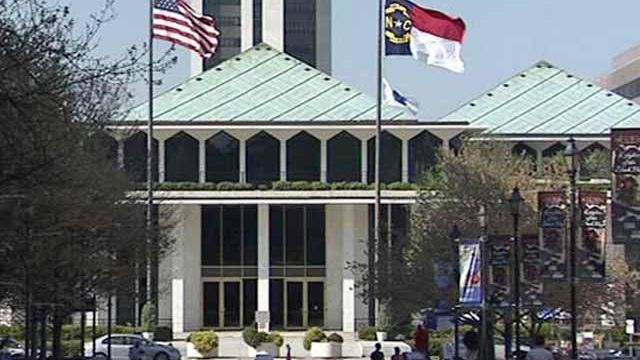House, Senate give preliminary approval to state budget
The House and Senate gave preliminary approval Tuesday to the $19 billion state budget. A final vote is set for Wednesday.
Posted — UpdatedThe Senate passed the budget by a 31-16 vote, while the House passed it by a 66-49 vote. A final vote is set for Wednesday, and it the budget is approved in both chambers, it would be sent to Gov. Beverly Perdue to be signed into law.
"As it stands after today’s vote, this budget is a clear win for the people of North Carolina
The new fiscal year starts Thursday.
Republicans voted against the budget, criticizing both the spending in the plan and how it was crafted.
The spending plan proposed for the new fiscal year after weeks of debate by House and Senate Democratic negotiators seeks to protect more classroom positions in public schools and University of North Carolina system campuses.
By earmarking more North Carolina Education Lottery profits to keep teachers employed in early grades – the most significant funding changes to the distribution since the lottery was created in 2005 – lawmakers believe they will prevent the elimination of 1,700 teacher and other instructional positions. Local school districts eliminated more than 5,000 positions last year.
"There's some really ... innovative ways in here to keep teachers teaching and faculty members teaching in the universities," said House Speaker Joe Hackney. "There are some new ways to minimize the damages."
But job preservation could come at a price for families and the teachers themselves. The bill would allow campuses to raise tuition by $750 per student to help close an extra $70 million in spending cuts lawmakers directed them to make. The measure also gives local school boards and university campuses the option to furlough school employees to offset budget cuts.
Furloughs are unlikely, given all the hoops a local school board would have to go through to direct up to two days in public school furloughs, said Brian Lewis, a lobbyist for the 65,000-member North Carolina Association of Educators, the state's top teacher lobbying group.
"We don't think there should be any (classroom) job losses in the 2010-11 school year," Lewis said.
Community college tuition also would go up by $6.50 to $56.50 per credit hour for in-state students.
UNC President Erskine Bowles issued a statement praising lawmakers' efforts to spare education from budget cuts.
"We knew there were going to be significant cuts in every part of state government, and the university (system) took its fair share," Bowles said. "But the legislature really worked hard to help us protect the quality of education we can deliver to our students."
The budget bill contains no broad tax increases but provides a tax credit to small businesses for their unemployment insurance tax.
Senate Minority Leader Phil Berger criticized the $34 million in business tax breaks, calling it a "jobs last budget" that was a "slap in the face to the working families and business owners who drive our state's economy."
The budget also would eliminate two Medicaid programs that pay for aides to help about 38,000 people living at home with bathing, cooking and other personal care needs. The programs would be replaced with two new programs that would save $50.7 million by tighter monitoring of patients who need less assistance or actually don't qualify for the services.
Democratic negotiators wrapped up their work on the final budget Monday after agreeing in principle to the plan over the weekend.
Berger, R-Rockingham, said Republicans weren't included in drafting the proposal and have had very little time to review it before debating and voting on it.
"On the conference report for the budget, you have things that were on neither the House version nor the Senate version (of the budget)," he said.
Republican leaders also said the budget doesn't prepare the state for an estimated $3 billion shortfall next year when temporary tax increases expire and stimulus money runs out.
"The Democrats' answer to getting out of hole is to just dig a deeper hole," Berger said.
State Treasurer Janet Cowell also was critical of the budget because lawmakers decided to withhold $139 million from the state pension fund to help make up for the loss of about $500 million in federal economic stimulus funds.
"Pension contributions function like credit card debt in that they are contractual obligations with compounding interest," Cowell said in a statement. "Left unpaid, the next bill gets bigger and harder to pay. Legislators are setting themselves up for a $1.2 billion pension bill in 2011 – a year in which the projected budget shortfall is $3 billion."
• Credits
Copyright 2024 by WRAL.com and the Associated Press. All rights reserved. This material may not be published, broadcast, rewritten or redistributed.






